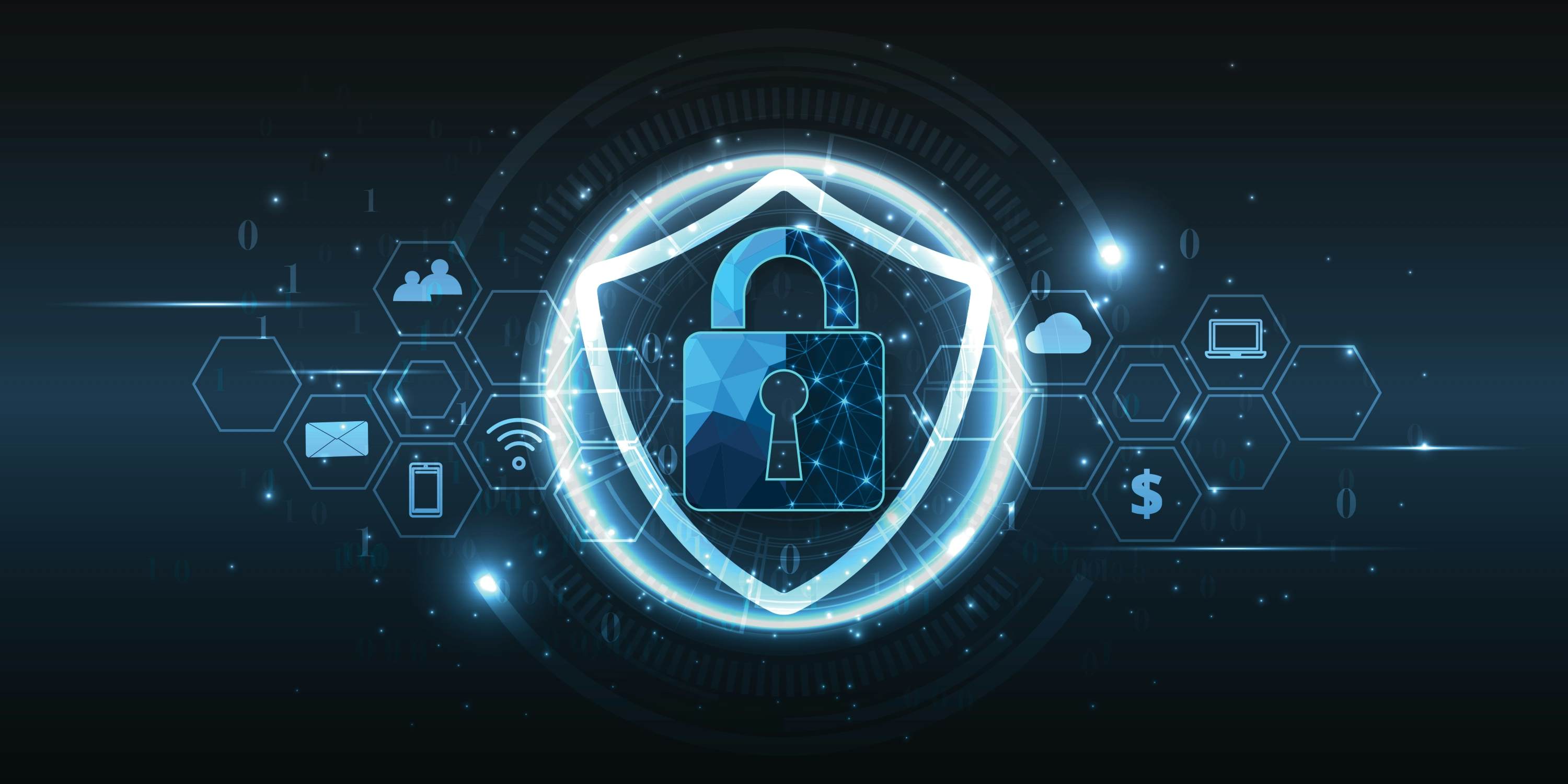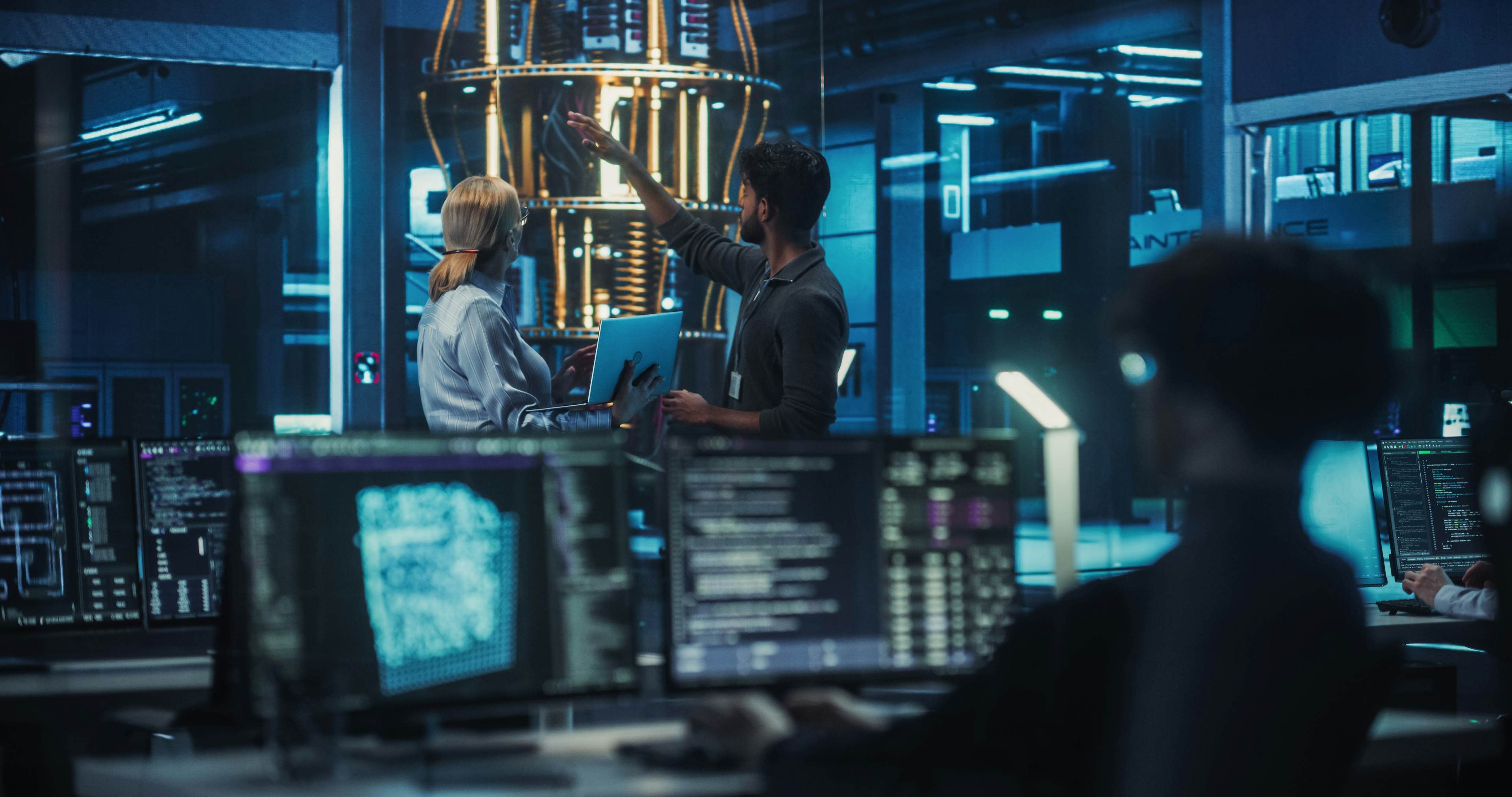Why We’re Investing in Cybersecurity Mafias: From Firewalls to Zero Trust
Alumni of cyber’s most influential companies are now facing their biggest test: building security for the AI era.

The past five years have been brutal for cybersecurity leaders. The 2020 SolarWinds breach showed how nation-states could weaponize software supply chains, compromising thousands of organizations across public and private sectors. In May 2021, the Colonial Pipeline ransomware attack shut down nearly half the fuel supply for the U.S. East Coast, triggering widespread gas shortages and panic buying. Just a few months earlier, vulnerabilities in Microsoft Exchange gave attackers access to tens of thousands of email servers worldwide.
Then came the AI revolution — and everything got exponentially worse. Since generative AI took off in 2022, phishing attacks have surged 1,265%. Deepfakes now fool employees on live video calls. AI-driven social engineering adapts mid-conversation. Breach costs have more than doubled since 2015, yet it still take organizations 204 days on average to detect a data breach, than another 73 days to contain an incident.
CISOs are stuck in an impossible bind — smarter threats, higher volumes, stricter regulations, and widening talent gaps. Meanwhile, traditional tools are failing to keep up.
This crisis is fueling a new wave of innovation — and a new generation of leaders. The same flywheel that spun PayPal alumni into trillion-dollar disruptors is now turning inside cybersecurity. Hyper-growth platforms like Check Point, Palo Alto Networks, and CrowdStrike trained thousands of operators to defend global infrastructure under extreme pressure, forging dense, trust-based networks.
As these battle-tested operators launch new companies, they bring three priceless assets:
- HomeDeep threat-intel muscle forged in real-world crises
- HomeProven go-to-market playbooks for regulated buyers
- HomeA Rolodex of CISOs who take the call — because they’ve been through hell together.
In a market where trust determines survival, those relationships are gold. And knowing where the next wave of cybersecurity founders will emerge is key to backing the ones who can actually solve the problems keeping executives up at night.
Where the Next Cyber Leaders Are Being Forged

Many of today’s most promising cybersecurity founders aren’t coming out of academia; they’re emerging from elite company alumni networks. These environments have trained operators under real-world pressure, forging dense ecosystems of talent, trust, and tested playbooks.
Here’s a look at five of the most influential cybersecurity “mafias” — the alumni networks producing the founders, investors, and operators driving the next wave of innovation.
The Check Point Network: Spawning Generations of Enterprise Defenders
Founded in 1993, Check Point’s legacy began with the invention of stateful-inspection firewalls and early commercialization of enterprise security — selling to Fortune 500s long before “cyber” became a formal budget line. Its engineers quickly learned that placing security at network chokepoints was not just a technical choice but also a powerful business strategy.
Cato Networks, founded by Check Point Co-Founder Shlomo Kramer, moved beyond the hardware appliance model to pioneer cloud-native SASE (Secure Access Service Edge). In the process, they transformed how enterprises secure and connect distributed workforces through an integrated cloud service.
Similarly, Orca Security — launched by former Check Point executives — disrupted the agent-based status quo with a simple question: What if cloud security were instant and agentless? Their answer: a breakthrough approach that enables deep, comprehensive scanning of entire cloud environments without deploying a single agent — propelling Orca to a valuation near $2B.
The Palo Alto Playbook: A Scalable Model for Cybersecurity Founders
Founded in 2005, Palo Alto Networks (PANW) redefined enterprise security by introducing application-aware next-generation firewalls and perfecting the channel partnership model that still underpins most enterprise security sales. The company’s “prevent first, detect later” philosophy became the blueprint for security professionals who blend technical depth with sales acumen and experience navigating complex enterprise environments.
Former PANW execs have helped build agentless cloud-security unicorns like Orca Security and Aqua Security, while also fueling the broader ecosystem through Palo Alto’s investment arm. The company’s strategic acquisition model has been a growth multiplier, expanding its platform and fostering a network of operators, founders, and investors now shaping the next era of cybersecurity. Notable deals include
- Home
Demisto ($560M, 2019)
for SOAR automation. - Home
Prisma Cloud (~$800M, 2019)
for unified cloud-native security. - Home
Expanse ($800M, 2020)
for attack surface management. - Home
Crypsis ($265M, 2020)
for incident response and forensics. - Home
Bridgecrew ($156M, 2021)
for developer-first infrastructure-as-code security.
From Unit 8200 to Unicorns: Israel’s Military-to-Startup Pipeline
Unit 8200, a division of the Israeli defense force, has produced a distinctive class of cybersecurity founders. These entrepreneurs blend advanced offensive and defensive skills with a bias for rapid product development under pressure. Unlike traditional corporate settings, these operators trained in scenarios where failure carried national security consequences.
Wiz, founded in 2020 and valued at $10B (with a potential $23B exit to Google), redefined cloud security through instant multi-cloud visibility. Armis, valued at $4.2B, brought similar urgency and scale to IoT and operational technology security. Both embody the Unit 8200 ethos: deploy fast, deliver immediate value, and scale from startup to market leader in just a few years.
The CrowdStrike Alumni Effect: Real-Time Thinking at Global Scale
Founded in 2011, CrowdStrike transformed security by demonstrating that cloud-scale telemetry and machine learning could detect and stop threats faster — and more accurately — than traditional, rule-based tools. Its real-time, adaptive approach set a new standard, enabling continuous protection across millions of device endpoints worldwide within minutes.
CrowdStrike alumni have become a driving force in
- HomeCybersecurity
- HomeFounding startups in threat intel and attack surface management
- HomeInvesting in OT security, AI guardrails, and cloud protection
- HomeApplying the company’s real-time, cloud-first DNA to the field’s toughest challenges
Through initiatives like the AWS-CrowdStrike-NVIDIA accelerator — which now graduates 30+ startups annually with access to Falcon APIs, GPU credits, and go-to-market support — they’re advancing detection in OT security, automotive cybersecurity, and generative AI guardrails
Mandiant’s Legacy Network: Breach-Tested Leaders Turned Founders
Mandiant is a U.S.-based cybersecurity company that was acquired by Google Cloud in 2022. Mandiant earned its reputation by setting the gold standard for incident response — leading high-stakes investigations during some of the most consequential in corporate history. When nation-state actors broke through, Mandiant teams were the ones running complex forensics under intense time pressure and executive scrutiny.
Founder Kevin Mandia has since carried that expertise into venture. He co-founded Ballistic Ventures to back “left-of-boom” startups — companies focused on preventing security incidents rather than simply responding to them after they occur.
Why This Is Cybersecurity’s Breakout Moment

The rise of these alumni networks would be notable in any era — but it’s especially important now. Cybersecurity is at a major inflection point, shaped by new threats, shifting architectures, and rising urgency across the enterprise. The conditions are aligning for experienced founders to drive the next wave of category-defining companies.
- Home
The attack surface has exploded
Cloud, IoT, OT, and AI-driven systems have vastly increased the number of assets that must be secured. Enterprises now manage more non-human identities (API keys, service accounts, AI agents) than human ones, with no slowdown in sight. - Home
AI-powered threats are escalating fast
Phishing attacks have surged over 1,200% since 2022*, driven by generative AI. Deepfakes, adaptive social engineering, and AI-driven malware are outpacing what human-scale security can handle. - Home
Security buyers are overwhelmed — and ready for simplification
CISOs are fatigued by 50+ tools in their stack, fragmented alerts, and brittle integrations. Demand is surging for “CISO-in-a-box” platforms that deploy quickly and just work. - Home
Regulation is creating captive demand.
Frameworks like the EU’s NIS 2 and emerging U.S. standards are pushing security budgets higher. Today, cyber regulatory compliance alone accounts for more than 10% of average enterprise security spend. - Home
A massive market expansion is underway.
The global cybersecurity market has grown in revenue from $140B in 2020 to ~$300B today, and is expected to grow at a CAGR of 12.6%* from 2025 to 2034. About 30% of budgets now go to third-party vendors*, meaning startups and challengers have more opportunity than ever.
Sources:
- Security Magazine | Report Shows 1,265% Increase in Phishing Emails Since ChatGPT Launched | “Phishing attacks have surged over 1,200% since 2022, driven by generative AI.”
- Industry Insight | CISO Challenges in 2025 | “The global cybersecurity market has grown in revenue from $140B in 2020 to ~$300B today, and is expected to grow at a CAGR of 12.6% from 2025 to 2034.”
- Internal Estimate | Global Security Compliance Trends | “About 30% of budgets now go to third-party vendors”
How Cybersecurity Mafias Are Built to Meet the Coming Cyber Wave
The alumni networks of Unit 8200, CrowdStrike, Check Point, Palo Alto, and Mandiant bring far more than technical chops. They come equipped with proven playbooks, trusted relationships, and real go-to-market firepower. These are the operators who built the platforms today’s security leaders rely on. Now, they’re channeling that hard-won experience into the next wave of innovation, where speed, simplicity, and automation aren’t just nice-to-haves — they’re the difference between staying ahead and falling behind.
- Home
Architecture as strategy
These builders learned that technical design choices shape business outcomes. Check Point alumni who once scaled firewalls are now leading the shift to SASE and zero-trust — delivered as cloud services, not hardware. - Home
Speed as a moat
CrowdStrike proved that sub-second detection and response beats feature checklists. Its alumni now apply that same real-time mindset to OT security, connected vehicles, and AI model monitoring, where lag equals failure. - Home
Credibility that converts
CISOs buy from people who’ve been in the trenches with them — the ones who fixed SolarWinds at 3 a.m. That trust lets mafia-backed startups land $10K usage deals that scale to $1 million ARR within a year. - Home
Built to solve sprawl
These founders lived in the pain of alert fatigue and fractured stacks. They know how to unify security capabilities into platforms that remain lightweight, like CrowdStrike’s single-agent model. - Home
Capital discipline + network leverage.
Security spending might be non-discretionary, but waste isn’t forgiven. These mafias excel at raising smaller, faster rounds — often from alumni angels — and scaling to nine-figure ARR with lean, efficient teams.

These founder networks are now taking on the field’s most urgent challenges, including:
- AI-driven defense that can keep pace with autonomous, machine-generated threats
- Securing non-human identities, such as service accounts, API keys, and AI agents
- Embedding governance and security directly into code
- Building systems that respond at machine speed, not human speed.
They’re not just ready for this moment — they’re built for it.
Where the Smart Money Goes Next
- Follow the talent flows. VP-level departures from Palo Alto Networks, CrowdStrike, or major consulting firms often signal future founders. The 12-month window post-exit is a common time for a first fundraise.
- Understand the cultural DNA. Different mafias produce different kinds of founders:
-
- Unit 8200 alumni tend to focus on offensive security and rapid iteration.
- Check Point veterans bring strengths in enterprise partnerships and regulatory navigation.
- CrowdStrike grads often build cloud-native platforms with real-time capabilities.
-
- Pay attention to network effects. When figures like Kevin Mandia or Shlomo Kramer back a startup, it can signal more than valuation. It brings distribution, strategic support, and early customer credibility.
- Spot second-derivative plays: These mafias don’t just build vendors — they invest, advise, and incubate. Picks-and-shovels opportunities often emerge in adjacent layers such as training data for security AI, infrastructure for LLM safety, or developer tooling purpose-built for security workflows.
What’s Coming — and Who Will Lead
The future of cybersecurity isn’t just about solving one problem — it’s about solving five at once: AI security, non-human identity management, operational simplicity, governance automation, and human-scale usability. Meeting these challenges requires systems-level thinking — the kind that only comes from leading security at scale, under pressure, and across domains.
That’s why cybersecurity mafias are so powerful right now. These founders have lived through the paradigm shifts: from signature detection to behavioral analytics, from perimeter defense to zero-trust, from manual response to automated remediation.
And the market dynamics are lining up behind them:
- Home
Non-discretionary budgets.
Cybersecurity remains one of the most resilient areas of enterprise IT spend. IDC projects global security spending will grow* steadily through 2028, reaching $377B — a testament to its recession-proof status and expanding priority. - Home
Regulatory tailwinds
Compliance is driving spend up 10–22% across industries. - Home
AI-driven threat expansion
New attack surfaces are creating entirely new categories. - Home
Complexity as a moat
The high technical bar discourages competition. - Home
Trust-based sales
Long-standing relationships supercharge go-to-market.
Sources:
* IDC |Worldwide Security Spending Guide | “IDC projects global security spending will grow steadily through 2028, reaching $377B — a testament to its recession-proof status and expanding priority.”
For investors who plug into these networks early — and for operators ready to turn frontline experience into category-defining companies— the next decade of cybersecurity will be like a family reunion that mints the future. With nearly $2 trillion in opportunity on the table, the question isn’t if cybersecurity mafias will lead. It’s which founders will define the future, and who will have backed them first.
Invest with the Cyber Mafias: Join Our Seed Syndicate
At Alumni Ventures, we back the founder networks shaping the future — from AI to cybersecurity and beyond. Join our Seed Syndicate to access disruptive early-stage deals from the operators building the next CrowdStrike, Wiz, or Palo Alto.
- Home
Free to join
no fees, just opportunity - Home
Choose your path
back the whole fund or select individual deals - Home
Plug Into the community
demo days, founder AMAs, and in-person events
Sign up today and start investing with the operators who’ve defended critical systems and are now building what’s next.
This communication is from Alumni Ventures, a for-profit venture capital company that is not affiliated with or endorsed by any school. It is not personalized advice, and AV only provides advice to its client funds. This communication is neither an offer to sell, nor a solicitation of an offer to purchase, any security. Such offers are made only pursuant to the formal offering documents for the fund(s) concerned, and describe significant risks and other material information that should be carefully considered before investing. For additional information, please see here. Achievement of investment objectives, including any amount of investment return, cannot be guaranteed. Co-investors are shown for illustrative purposes only, do not reflect all organizations with which AV co-invests, and do not necessarily indicate future co-investors. Example portfolio companies shown are not available to future investors, except potentially in the case of follow-on investments. Venture capital investing involves substantial risk, including risk of loss of all capital invested. This communication includes forward-looking statements, generally consisting of any statement pertaining to any issue other than historical fact, including without limitation predictions, financial projections, the anticipated results of the execution of any plan or strategy, the expectation or belief of the speaker, or other events or circumstances to exist in the future. Forward-looking statements are not representations of actual fact, depend on certain assumptions that may not be realized, and are not guaranteed to occur. Any forward-looking statements included in this communication speak only as of the date of the communication. AV and its affiliates disclaim any obligation to update, amend, or alter such forward-looking statements, whether due to subsequent events, new information, or otherwise.